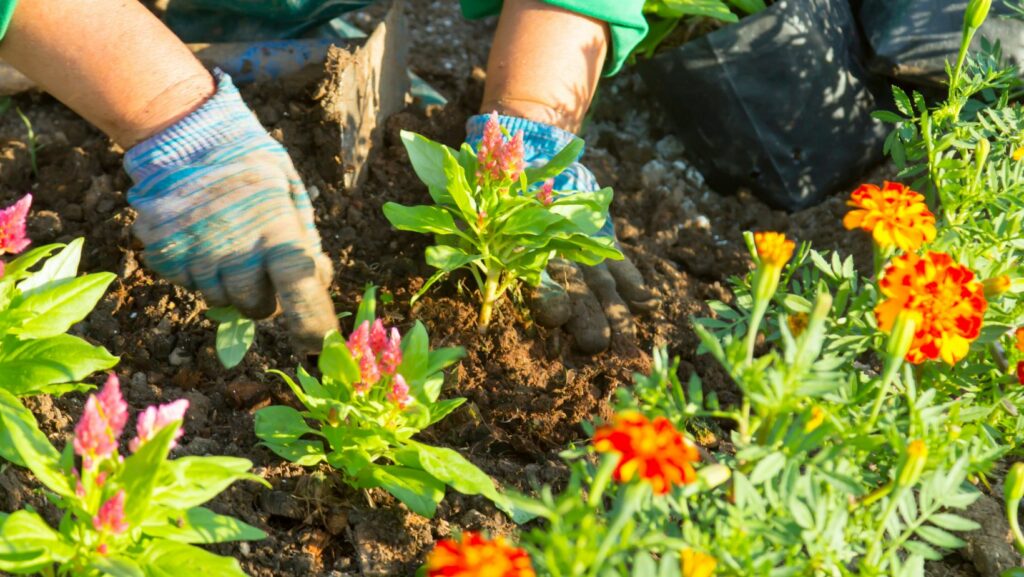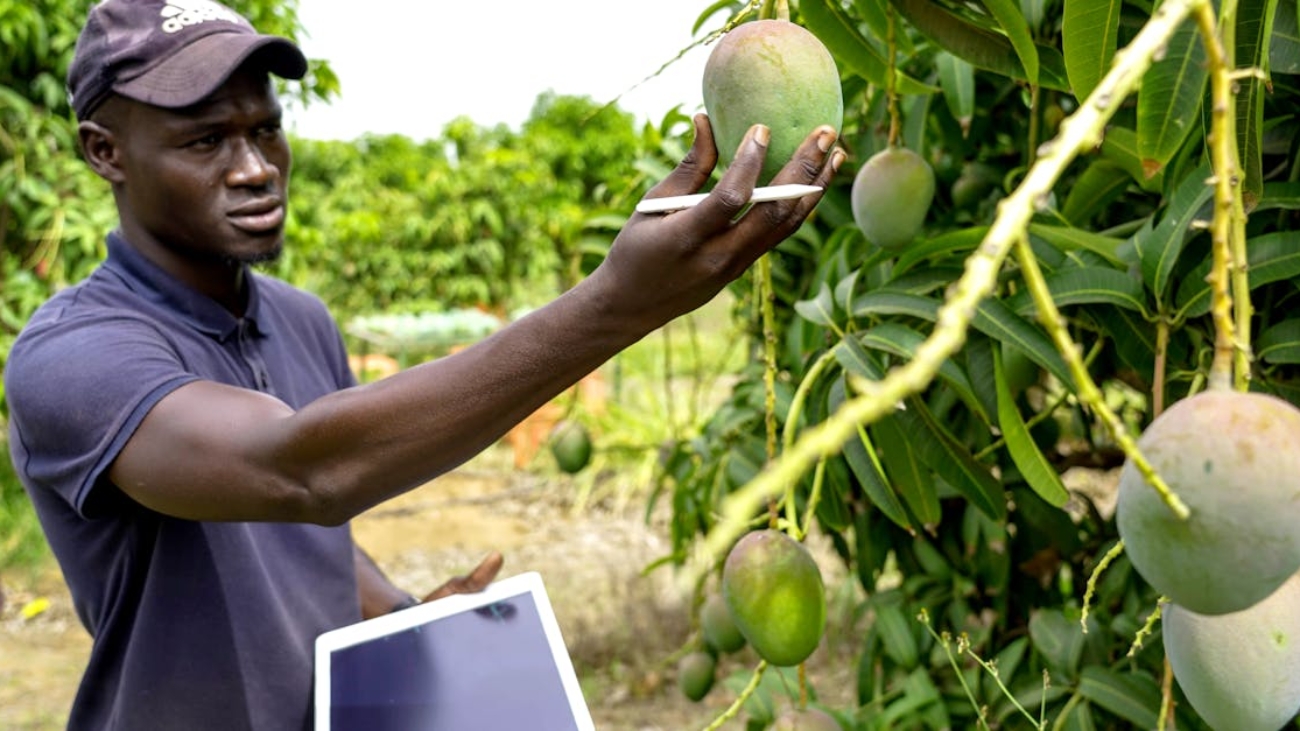Sustainable agriculture represents one of the most promising investment opportunities in today’s rapidly changing world. As global populations continue to grow and climate challenges intensify, the need for environmentally responsible farming practices has never been more critical.
Investing in sustainable agriculture isn’t just about protecting the environment – it’s a smart financial move that offers potential returns while supporting food security and rural communities. From vertical farming technologies to organic production methods, the sector provides diverse investment options for both individual and institutional investors. These investments help create resilient food systems that can withstand climate challenges while reducing environmental impact through efficient resource management and reduced chemical usage.
Invest in Sustainable Agriculture
Sustainable agriculture integrates environmental stewardship with profitable farming through methods that maintain productivity while preserving natural resources. This agricultural approach combines traditional farming wisdom with modern technology to create resilient food production systems.
Key Principles and Practices
Sustainable agriculture operates on five core principles: soil health management, water conservation, biodiversity preservation, integrated pest management and resource efficiency. Farmers implement crop rotation patterns with 3-4 different crops to naturally replenish soil nutrients. Cover cropping protects soil during off-seasons, reducing erosion by 50-90%. Precision irrigation systems decrease water usage by 30-50% compared to conventional methods while maintaining optimal crop yields.
| Sustainable Practice | Resource Savings | Productivity Impact |
|---|---|---|
| Crop Rotation | 30-50% less fertilizer | 20% yield increase |
| Drip Irrigation | 30-50% water reduction | 15% yield increase |
| Cover Cropping | 50-90% erosion reduction | 10% soil fertility increase |
Environmental and Social Benefits
Sustainable farming methods generate measurable environmental improvements through reduced chemical inputs and enhanced ecosystem services. These practices:
- Decrease greenhouse gas emissions by 20-30% through reduced tillage
- Enhance soil carbon sequestration by 2-3 tons per hectare annually
- Support 30% more biodiversity compared to conventional farming
- Create 35% more rural employment opportunities
- Reduce agricultural water pollution by 40% through natural pest management
- Generate 15-20% premium prices for farmers through certification programs
These systems strengthen local food security while supporting rural economic development through stable agricultural employment and improved farm profitability.
Investment Opportunities in Sustainable Farming
Sustainable agriculture offers diverse investment pathways with potential for both environmental impact and financial returns. The sector presents multiple entry points for investors seeking to support eco-friendly farming practices while generating profitable outcomes.
Direct Land Investment
Direct land investment involves purchasing or leasing agricultural land for sustainable farming operations. Investors acquire farmland properties ranging from 10 to 1,000+ acres to implement regenerative practices like organic farming, agroforestry or integrated livestock systems. This approach provides tangible asset ownership with revenue streams from crop sales, carbon credits and ecosystem services.
Agricultural Technology Companies
AgTech companies develop innovations that enhance sustainable farming efficiency and productivity. Investment opportunities include:
- Precision agriculture tools for resource optimization
- Smart irrigation systems reducing water consumption
- Soil monitoring technologies tracking nutrient levels
- Robotics automating sustainable farming tasks
- Vertical farming solutions for urban agriculture
| AgTech Segment | Market Size 2022 | Projected Growth by 2027 |
|---|---|---|
| Precision Ag | $8.5 billion | 12.8% CAGR |
| Smart Irrigation | $1.9 billion | 15.3% CAGR |
| Vertical Farming | $3.1 billion | 24.8% CAGR |
- Exchange-traded funds tracking sustainable agriculture indexes
- Mutual funds investing in eco-friendly farming companies
- Private equity funds supporting regenerative agriculture projects
- Impact investment funds targeting environmental farming solutions
- Green bonds financing sustainable agricultural infrastructure
Financial Benefits of Sustainable Agriculture
Sustainable agriculture generates consistent financial returns through reduced operational costs and premium market pricing. The economic advantages extend beyond immediate profits to create lasting value for agricultural investments.

Long-term Profitability
Sustainable farming practices reduce input costs by 25-50% compared to conventional methods through decreased chemical and water usage. Farmers implementing organic practices command premium prices, averaging 30% higher than conventional products in retail markets. The adoption of precision agriculture technologies generates additional revenue streams through:
- Decreased fertilizer expenses from targeted nutrient applications
- Reduced labor costs through automated systems
- Enhanced crop yields from optimized growing conditions
- Improved soil fertility leading to consistent harvests
- Multiple revenue streams from diversified crop rotations
- Crop resilience through biodiversity, reducing crop failure risks by 40%
- Decreased exposure to commodity price fluctuations
- Lower insurance premiums from reduced operational risks
- Protection against regulatory changes targeting conventional farming
- Stable cash flows from diversified income sources
| Risk Mitigation Factor | Impact Percentage |
|---|---|
| Crop Failure Risk Reduction | 40% |
| Input Cost Savings | 25-50% |
| Price Premium | 30% |
| Water Usage Reduction | 20-35% |
Government Support and Incentives
Government agencies provide financial support mechanisms to encourage investment in sustainable agriculture practices through tax incentives grants. These programs aim to accelerate the adoption of environmentally friendly farming methods while ensuring economic viability for farmers.
Tax Benefits
Agricultural businesses implementing sustainable practices qualify for specific tax deductions credits:
- Section 179 deductions allow farmers to write off up to $1.08 million in qualifying equipment purchases
- Conservation easement tax credits offer 30-50% deductions on land value dedicated to conservation
- Energy-efficient equipment installations receive 10-30% tax credits through federal programs
- State-level property tax exemptions apply to land used for sustainable farming practices
- Accelerated depreciation benefits cover organic certification costs renewable energy systems
- USDA’s Environmental Quality Incentives Program (EQIP) provides up to $450,000 per project
- Conservation Stewardship Program offers annual payments of $40,000 for implementing conservation practices
- Rural Energy for America Program (REAP) funds 25% of renewable energy project costs
- Beginning Farmer Development Program grants range from $50,000 to $250,000
- Sustainable Agriculture Research Education grants supply $15,000-$200,000 for innovation projects
| Grant Program | Maximum Funding | Focus Area |
|---|---|---|
| EQIP | $450,000 | Conservation practices |
| REAP | 25% of costs | Renewable energy |
| CSP | $40,000/year | Conservation management |
| BFDP | $250,000 | New farmer support |
| SARE | $200,000 | Research innovation |
Impact Investing in Agricultural Innovation
Agricultural innovation investments focus on technologies that enhance sustainable farming practices while delivering competitive financial returns. These investments target solutions that optimize resource usage, increase crop yields, and promote environmental stewardship.
Regenerative Farming Technologies
Regenerative farming technologies restore soil health and enhance biodiversity through data-driven solutions. Advanced soil sensors monitor nutrient levels, moisture content, and microbial activity in real-time. Key technological innovations include:
- Biochar production systems that sequester carbon and improve soil structure
- Automated composting units that convert farm waste into nutrient-rich fertilizer
- Microbiome management tools that enhance soil biological activity
- Cover crop seeding drones that maintain year-round soil coverage
- Variable rate application systems that reduce fertilizer usage by 15%
- AI-powered crop monitoring platforms that detect pest issues 48 hours earlier
- GPS-guided machinery that decreases fuel consumption by 20%
- IoT sensors that optimize irrigation timing and reduce water usage by 30%
| Technology Type | Resource Reduction | Yield Increase |
|---|---|---|
| Variable Rate Systems | 15% fertilizer | 10% |
| Smart Irrigation | 30% water | 20% |
| Automated Guidance | 20% fuel | 5% |
| Precision Seeding | 12% seed waste | 15% |
Market Growth and Future Outlook
The sustainable agriculture market demonstrates exponential growth driven by increasing consumer awareness and environmental concerns. Global market valuations indicate a compound annual growth rate (CAGR) of 12.2% from 2021 to 2028.
Consumer Demand Trends
Consumer preferences for sustainable agricultural products show significant shifts in purchasing patterns. Market research reveals a 46% increase in organic food sales between 2019 and 2022.
| Consumer Trend | Growth Rate | Year |
|---|---|---|
| Organic Food Sales | +46% | 2019-2022 |
| Plant-based Products | +27% | 2021-2022 |
| Local Food Sourcing | +35% | 2020-2022 |
Key drivers include:
- Purchasing organic produce from certified sustainable farms
- Supporting local agricultural systems through direct-to-consumer channels
- Selecting products with transparent supply chain practices
- Choosing regeneratively grown food products
Industry Projections
The sustainable agriculture sector exhibits robust growth trajectories across multiple segments. Financial forecasts predict market expansion from $12.9 billion in 2022 to $26.5 billion by 2028.
| Market Segment | Projected CAGR (2022-2028) |
|---|---|
| Precision Agriculture | 14.2% |
| Organic Farming | 11.8% |
| Vertical Farming | 16.5% |
| Regenerative Agriculture | 15.3% |
- Expansion of certified organic farmland by 2.3 million acres annually
- Integration of AI-powered farming solutions in 65% of commercial operations
- Development of 850 new vertical farming facilities by 2025
- Investment increase of $8.3 billion in sustainable agriculture technology
Pivotal Opportunity to Generate Substantial Returns
Investing in sustainable agriculture represents a pivotal opportunity to generate substantial returns while addressing critical environmental and social challenges. The sector’s remarkable growth projections coupled with strong government support make it an attractive option for forward-thinking investors.
As consumer demand for sustainable food products continues to surge and technological innovations advance the field investors can expect both short-term gains and long-term value appreciation. The combination of reduced operational costs premium pricing opportunities and enhanced crop resilience creates a compelling case for sustainable agriculture investments.
The time to invest in sustainable agriculture is now. With projected market expansion tax incentives and growing consumer awareness this sector offers a unique chance to build wealth while contributing to a more sustainable and food-secure future.
